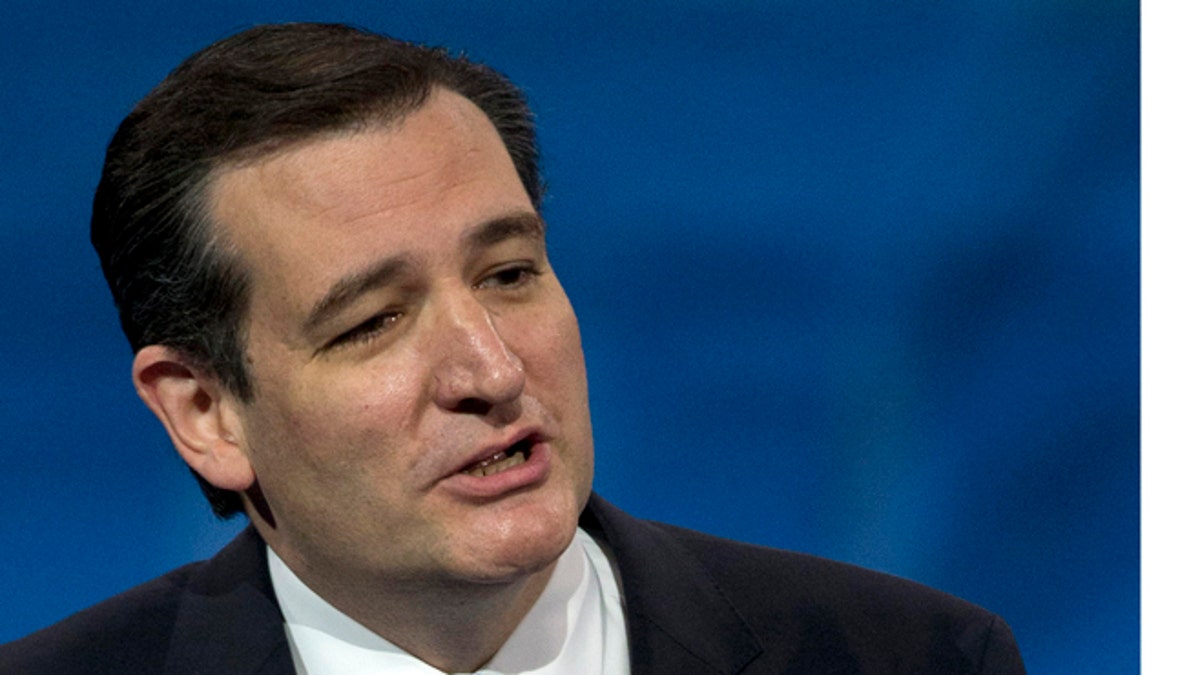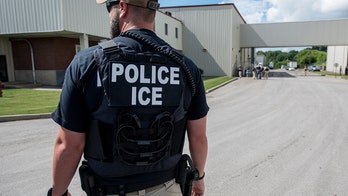
Sen. Ted Cruz, Texas Republican (AP)
Republican lawmakers are moving quickly to try and allow states to require proof of citizenship for a voter registration form after the Supreme Court rejected an Arizona law that did just that.
In a blow to Arizona's efforts to toughen its voter ID standards, the high court on Monday ruled 7-2 that states could not unilaterally require would-be voters to prove citizenship in order to use a federal registration form. The court ruled that because the federal "Motor Voter" registration law -- which created the form -- doesn't require that documentation, Arizona could not on its own demand it.
In response, Sens. Ted Cruz, R-Texas, and David Vitter, R-La., announced an amendment to the Senate immigration overhaul that would explicitly allow states to impose those requirements.
In a statement, Cruz said the Supreme Court ruling leaves a "hole in federal law" that must be addressed.
"This encourages voter fraud and we must ensure that our elections are fair and accurately reflect the will of our citizens," he said.
The amendment would adjust the federal law so that states would be able to require proof of citizenship in order to complete any federal voter registration form.
On the House, side, Rep. Matt Salmon, R-Ariz., also plans to introduce a separate bill on Tuesday to change the law in a similar fashion. His bill would grant states the authority to ask for additional documents to prove citizenship.
Meanwhile, Sen. Rand Paul, R-Ky., is pushing an amendment of his own that would ensure immigrants given visas or legal status under the immigration overhaul cannot vote in federal elections until they become citizens. His amendment would also allow states to check citizenship before allowing them to register to vote.
The high court justices cited the existing federal law in their ruling against Arizona's voter ID measure.
Federal law "precludes Arizona from requiring a federal form applicant to submit information beyond that required by the form itself," Justice Antonia Scalia wrote for the court's majority.
The 9th U.S. Circuit Court of Appeals earlier said that the National Voter Registration Act of 1993, which doesn't require such documentation, trumps Arizona's Proposition 200 passed in 2004.
Arizona appealed that decision to the Supreme Court, and the high court agreed.
"Today's decision sends a strong message that states cannot block their citizens from registering to vote by superimposing burdensome paperwork requirements on top of federal law," said Nina Perales, vice president of litigation for the Mexican American Legal Defense and Educational Fund and lead counsel for the voters who challenged Proposition 200.
"The Supreme Court has affirmed that all U.S. citizens have the right to register to vote using the national postcard, regardless of the state in which they live," she said.
Justices Clarence Thomas and Samuel Alito dissented from the court's ruling.
The Constitution "authorizes states to determine the qualifications of voters in federal elections, which necessarily includes the related power to determine whether those qualifications are satisfied," Thomas said in his dissent.
The federal "motor voter" law, enacted in 1993 to expand voter registration, requires states to offer voter registration when a resident applies for a driver's license or certain benefits. Another provision of that law -- the one at issue before the court -- requires states to allow would-be voters to fill out mail-in registration cards and swear they are citizens under penalty of perjury, but it doesn't require them to show proof. Under Proposition 200, Arizona officials require an Arizona driver's license issued after 1996, a U.S. birth certificate, a passport or other similar document, or the state will reject the federal registration application form.
While the court was clear in stating that states cannot add additional identification requirements to the federal forms on their own, it was also clear that the same actions can be taken by state governments if they get the approval of the federal government and the federal courts.
Arizona can ask the federal government to include the extra documents as a state-specific requirement, Scalia said, and take any decision made by the government on that request back to court. Other states have already done so, Scalia said.
The Associated Press contributed to this report.




